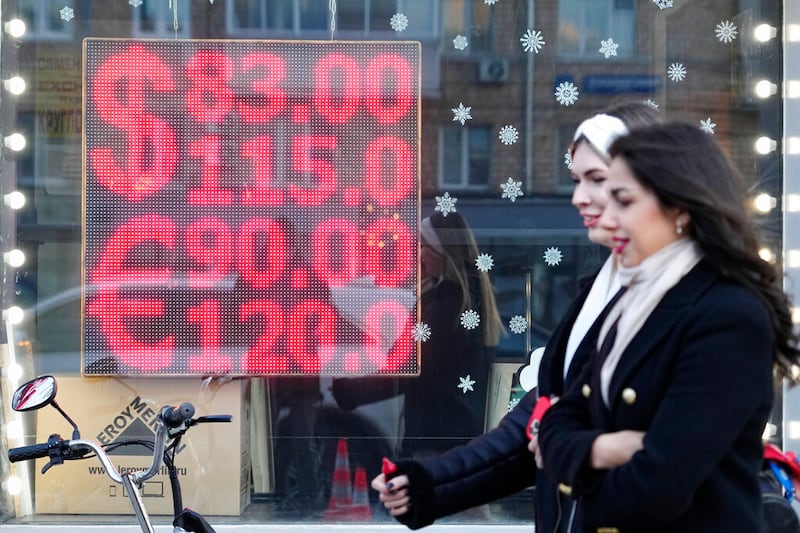Western sanctions have left the ruble, the Russian currency, to plummet, falling to a record low.
The news: The ruble fell about 30% against the U.S. dollar after the U.S., the European Union and the United Kingdom imposed sanctions against Russia and announced that they would block some Russian banks from the SWIFT international payments system to stop the country from using its $630 billion in foreign currency reserves, according to The Associated Press.
- Russia’s central bank doubled the country’s key interest rate from 9.5% to 20%, according to CNBC. This action “is designed to offset increased risk of ruble depreciation and inflation, the central bank said.”
- The bank also said it is freeing $8.78 billion in local bank reserves to increase liquidity.
- The ruble lost 20% of its value at the start of the trading day. Later, the bank decided not to open the stock market for the day.
Russia’s response: The Kremlin acknowledged the problems that came with sanctions but said the government has contingencies in place.
- “The economic reality has considerably changed,” Kremlin spokesperson Dmitry Peskov told reporters, according to Reuters.
- “These are heavy sanctions, they are problematic, but Russia has the potential to offset the harm.”
- “Russia has been making plans for quite a long time for possible sanctions, including the most severe ones. There are response plans, they were developed and are being implemented as problems appear.”
- “We have had no reason to doubt the effectiveness and reliability of our central bank. There is no reason to doubt it now.”
View Comments
Why it matters: The increasing sanctions from the U.S., the European Union and the United Kingdom have hit the Russian economy, according to Axios.
- The devaluation of currency threatens Russia’s ruble savings in banks.
- It also pushes interest rates and inflation to increase.
- This devaluation will also drive people to withdraw cash in masses and convert the money to a more stable currency like the dollar or the euro, which is already being observed in Russian cities.



